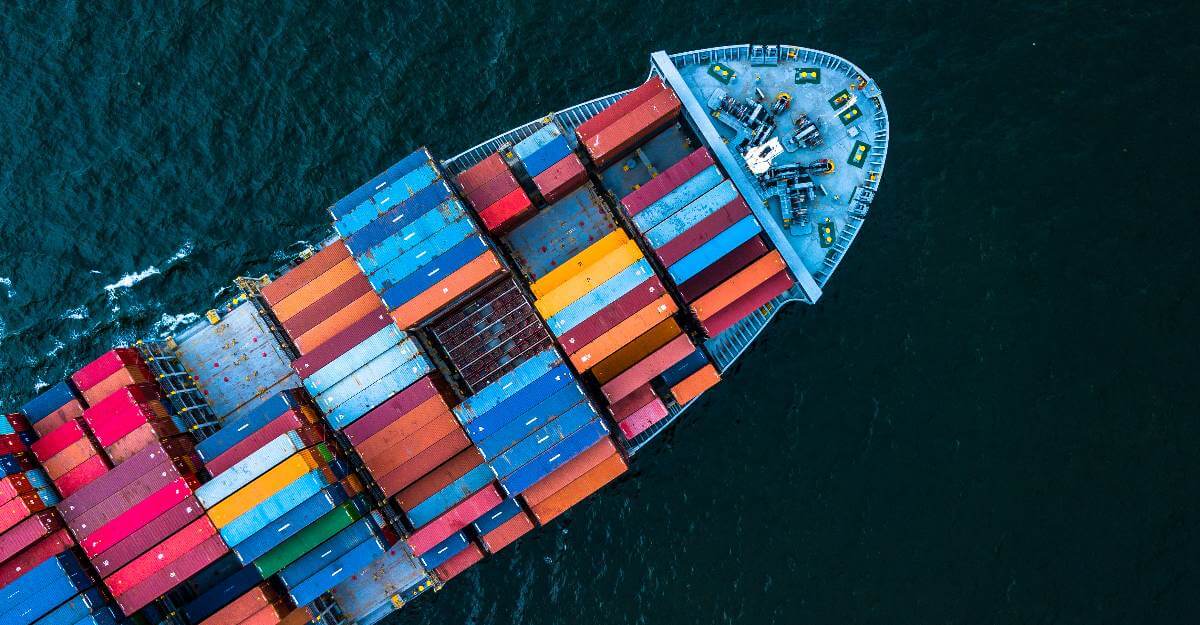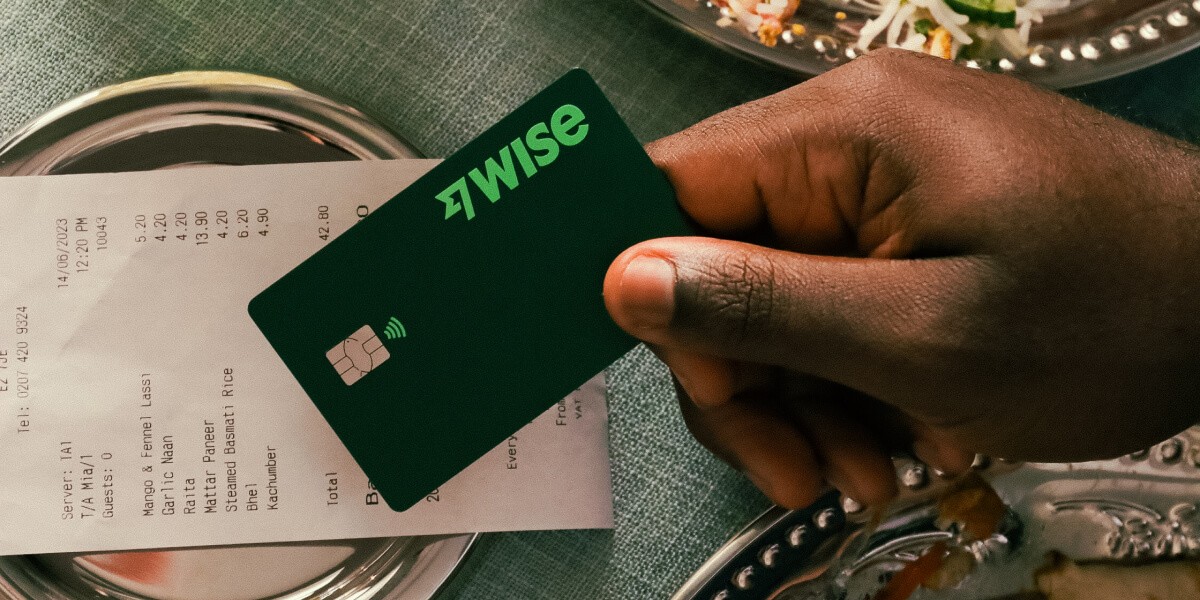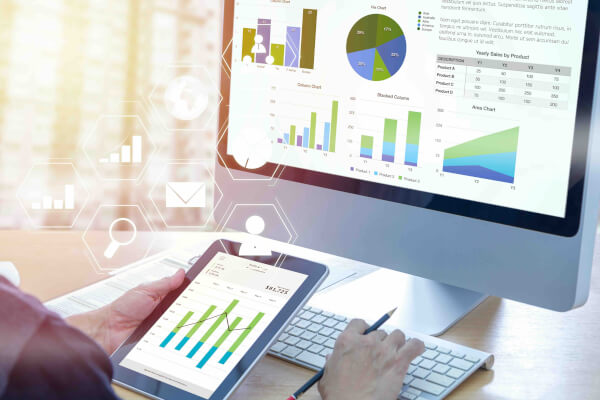4 steps to consolidate your business finances with accounting software
As a business owner it’s crucial that you keep on top of your company’s financial health at all times, including profit and loss, balance and cash flow. This...

China is one of the largest manufacturers in the world, with a huge range of popular consumer products produced there, as well as industrial equipment, cars and more. With so much choice, the biggest question in your mind may well be: what to import from China?
The good news is that many businesses are involved in importing from China to the UK - which means that there are lots of options to make the process easier when importing products from China. This guide walks through your options. We’ll also introduce Wise Business as a low cost way to pay Chinese suppliers from the UK, with the mid-market exchange rate and low fees.
💡 Learn more about Wise Business
There are lots of third party agents and freight forwarding companies which can help you if you’re thinking of importing goods from China to the UK. While this may cost you a little bit more than doing the import protocols yourself, it can make the entire process hassle free, removing language barriers and making customs clearance a breeze. Read on for an introduction to the important considerations when importing from China to the UK.
Whether or not you need a licence to import goods from China to the UK depends on exactly what you’re importing. Some products need a licence or certificate - particularly for things like food, medicine, chemicals and dangerous goods. For many popular consumer goods and clothing items you’ll often find no licence is needed - get full details on the UK government website¹ if you’re unsure about the items you’re importing.
Here’s an overview of the usual process for importing goods from China to the UK:
- Apply for an Economic Operators Registration and Identification number (EORI number)²
- Check the business you’re buying from can export to the UK
- Get the commodity code for your goods
- Work out the value of your goods for duty and VAT purposes
- Check if you need a licence or certificate for your goods
- Check the customs duty rules based on the import type
- Check labelling and marketing rules for items like food and manufactured goods
- Complete the customs declaration and ship your goods
- Claim a VAT refund
You can also learn more about how to get an import licence in the UK and get pointers on how to start an export business in the UK in our handy guides.
You will need an EORI number² for your business if you want to import goods into the UK from China or elsewhere in the world. This number is required as part of customs clearance when your goods arrive on the UK border. EORI numbers can be arranged online - bear in mind that an EORI number issued for your business before Brexit may no longer work. Now you’ll need an EORI number which starts with GB if you’re importing to England, Scotland or Wales.
China is the UK’s 5th largest trading partner³. A pretty huge 75,000+ UK businesses import from China annually. The most commonly imported goods are pretty varied, including clothing, consumer goods, electrical items, telecoms and cars.
You’ll ship your goods from China to the UK by sea or air. The cost of importing from China to the UK depends on the option you pick. Air freight is faster but expensive - over 1,000 USD per cubic metre. Sea freight costs can vary depending on whether you’ll fill a whole container or not - but are cheaper than flying your items by a long way.
You can either arrange your shipping yourself or have a third party intermediary help with this. As so many UK businesses import from China there are lots of options available to make this process easier and stress free.
Sea freight from China to the UK is likely to take 40 - 60 days door to door. The exact delivery times depend on whether you choose a full container load or a partial container load - full containers are faster as the freight forwarder doesn’t have to arrange multiple pickups.
Air freight can take 6 - 16 days door to door, to take into account customs clearance, loading, unloading and delivery timescales.
UK import taxes are set according to the items commodity code⁴. Commodity codes vary depending on what the item is, what it’s made from, where it originated and other factors. You can look up your item’s commodity code easily online to see the percentage import tax that applies - calculate the amount to pay based on this and the value of the items you’re importing.
| Read more about importing charges from China to the UK |
|---|
If you’re a UK VAT registered business you may pay import VAT on items you’ve brought into the country. Double check the rules that apply for your specific situation on the UK government’s VAT and import guidance, available online⁵.
To clear UK customs you’ll need your EORI number and documents which vary based on the items involved but which can include:
- A bill of lading
- A commercial invoice
- A packing list
- A certification of origin
- Import licence if required
Importing goods from China to the UK is pretty common - thousands of businesses import from China annually. However, the process isn’t always straightforward or without risk - using a freight forwarder or agent when you’re just starting out can be very useful to make sure everything goes smoothly. Here are a few other considerations for importing from China to the UK.
You can find plenty of Chinese suppliers online through marketplace and network sites like Alibaba. Quality of goods and reliability can vary a lot, so it’s important to do thorough due diligence checks before you choose one. Get samples, look at the quality of manufacturing and materials, and discuss the costs and guarantees if anything goes wrong before you choose your Chinese supplier.
Language barriers are common so if you’re not using an agent, having a translator can be helpful.
Another great way of finding Chinese suppliers for a specific product or industry is to attend trade fairs and shows. This means travelling to China, and visiting a trade fair where you can check the products first handed, get to know suppliers in person and even negotiate better deals. To discover Chinese trade fairs you can check the Jetro database.
If you decide to visit a trade fair in China, Wise Business debit card can be a great way to spend in Chinese Yuan with ease.

You can pay in CNY with your Wise Business card even if you don't have a balance for the currency on your multi-currency account. Wise's smart technology will convert your spending automatically to GBP with the mid-market exchange rate. What is even better? You earn 0.5% cashback on your purchases.
Get started with Wise Business 🚀
Negotiate payment and delivery terms carefully. International incoterms⁶ are helpful here as they can be used to define your agreement in globally understood terms, even when you and your supplier may not share a language. Incoterms cover things like who pays duties and delivery costs, and at what point in the shipping process the items are the full responsibility of the seller - all important to know in advance.
Getting an international account with Wise Business can help when you’re paying for your imports in CNY - or any other foreign currency. With Wise you’ll be able to exchange from GBP to CNY with the mid-market exchange rate and low fees from 0.42%, to cut your costs and give you the best chance of making a profit on your imports. More on that in a moment.
Get started with Wise Business 🚀
Most UK businesses bring in their imports from China by sea although air is also possible if you have urgent goods or very small, light and valuable pieces. Compare a few costs and consider using a full service package from a freight forwarder to make the process easier.
The UK’s customs process - and the documents you’ll need to have - can vary based on the type of item you’re importing. You’ll need to get the advice of your shipping company to help you complete the paperwork - or just leave the whole end to end process to the shipper to make it easier to manage.
Use Wise Business to pay your Chinese suppliers with low costs and the mid-market exchange rate. Plus Wise Business transfers can arrive quickly or even instantly⁷.
Use your Wise Business account to hold and exchange 40+ currencies, receive payments in foreign currencies from customers, and spend overseas with linked debit and expense cards. You’ll also get time saving extras like multi-user access, batch payments, cloud accounting integrations and more, with no ongoing fees and no minimum balance requirement.
Get started with Wise Business 🚀
Use this guide to get started with importing from China to the UK - and remember to check out Wise Business for easy ways to pay overseas suppliers, using the mid-market exchange rate and low, transparent fees.
Sources used in this article:
Sources last checked March 25, 2024
*Please see terms of use and product availability for your region or visit Wise fees and pricing for the most up to date pricing and fee information.
This publication is provided for general information purposes and does not constitute legal, tax or other professional advice from Wise Payments Limited or its subsidiaries and its affiliates, and it is not intended as a substitute for obtaining advice from a financial advisor or any other professional.
We make no representations, warranties or guarantees, whether expressed or implied, that the content in the publication is accurate, complete or up to date.

As a business owner it’s crucial that you keep on top of your company’s financial health at all times, including profit and loss, balance and cash flow. This...

Running a business is rewarding - but it can also feel pretty hectic. When you’re starting out, and particularly if you’re looking to scale and expand...

Check out our guide on Canada tax codes. Get to grips with tax codes by province, federal income tax rates in Canada to help with international employees.

Looking to scale your business in Scotland? Check out this guide to business grants in Scotland from start up funding to government business grants and more.

Seeking funding for your business? This guide signposts what grants are available for small businesses in the UK and tips to help ensure application success.

Looking to scale with a business grant? This guide outlines opportunities for business grants in Wales - from start up funding to Welsh government grants.